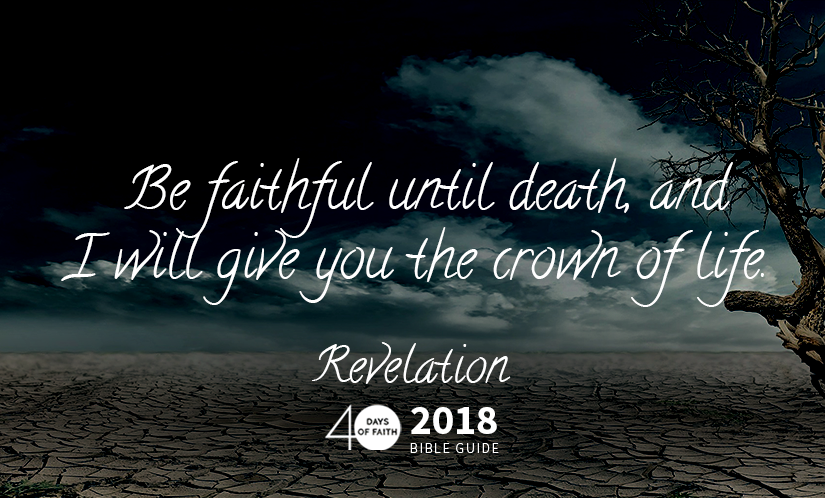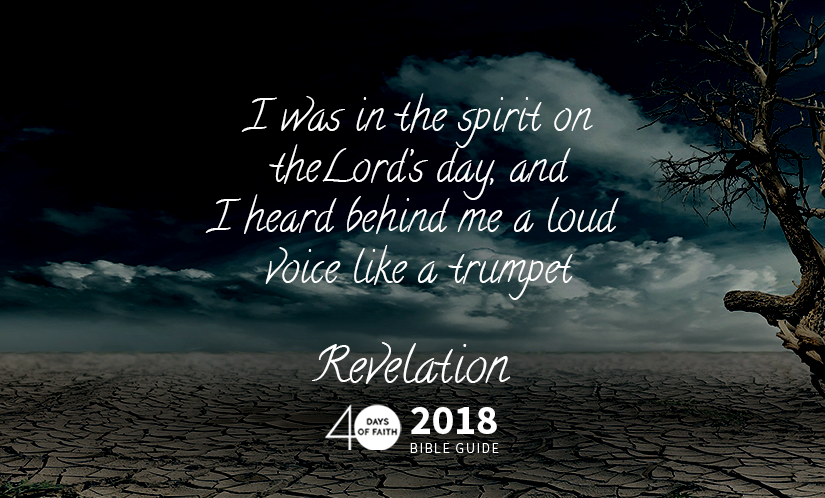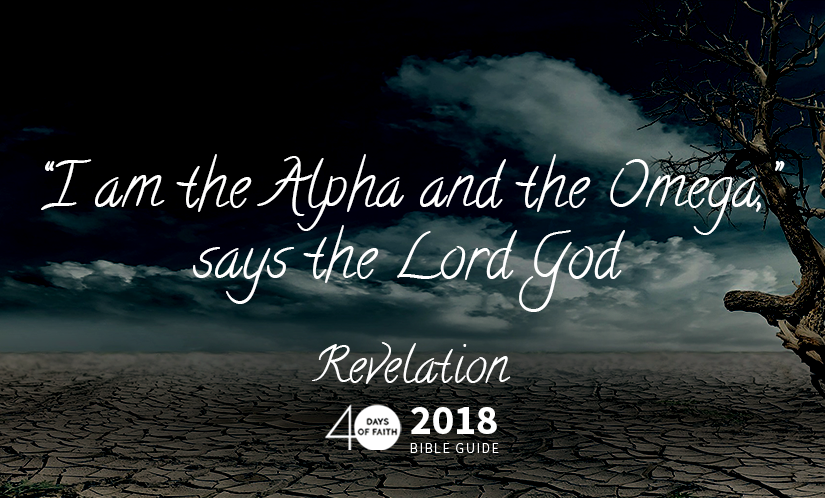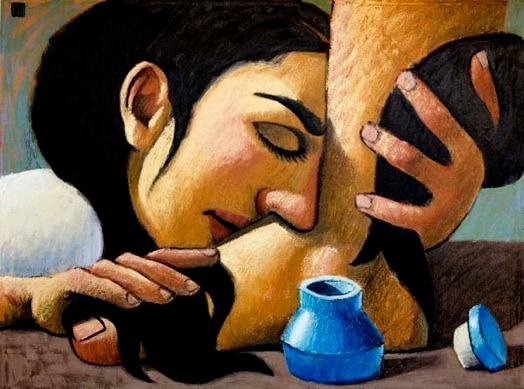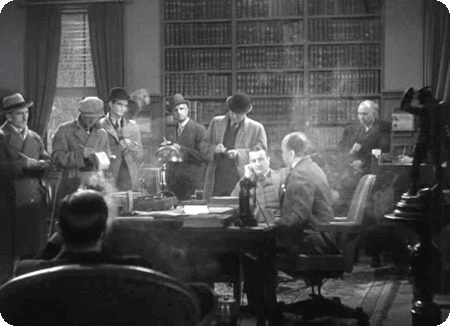Previously in Revelation
As for the mystery of the seven stars that you saw in my right hand, and the seven golden lampstands: the seven stars are the angels of the seven churches, and the seven lampstands are the seven churches.
Day 3
Revelation 2:1-11
1“To the angel of the church in Ephesus write: These are the words of him who holds the seven stars in his right hand, who walks among the seven golden lampstands:
2“I know your works, your toil and your patient endurance. I know that you cannot tolerate evildoers; you have tested those who claim to be apostles but are not, and have found them to be false. 3I also know that you are enduring patiently and bearing up for the sake of my name, and that you have not grown weary. 4But I have this against you, that you have abandoned the love you had at first. 5Remember then from what you have fallen; repent, and do the works you did at first. If not, I will come to you and remove your lampstand from its place, unless you repent. 6Yet this is to your credit: you hate the works of the Nicolaitans, which I also hate. 7Let anyone who has an ear listen to what the Spirit is saying to the churches. To everyone who conquers, I will give permission to eat from the tree of life that is in the paradise of God.
8“And to the angel of the church in Smyrna write: These are the words of the first and the last, who was dead and came to life:
9“I know your affliction and your poverty, even though you are rich. I know the slander on the part of those who say that they are Jews and are not, but are a synagogue of Satan. 10Do not fear what you are about to suffer. Beware, the devil is about to throw some of you into prison so that you may be tested, and for ten days you will have affliction. Be faithful until death, and I will give you the crown of life. 11Let anyone who has an ear listen to what the Spirit is saying to the churches. Whoever conquers will not be harmed by the second death.
Points of Interest
- “To the angel…” Given that an angel signifies a messenger, this could refer to a leader in the church or poetically to a guardian angel or to the Spirit of God who will help each person receive the message.
- “Ephesus” – A very large city, one of the biggest in the Roman Empire, famous for its wealth, trade, and ornate temple of Diana that was as large as two football fields.
- “These are the words…”Each of the seven addresses follows a formula that includes Jesus speaking to the church. Jesus knows each community intimately and is revealing their true strengths and weaknesses. Each time, an aspect of the opening vision of Jesus (Ch 1) is emphasized.
- “your toil and patient endurance” – This church is cautious, steady, and cares about truth and correct beliefs.
- “…abandoned the love” – Yet this church also lacks love – perhaps lacking deep love for God, perhaps lacking deep love for others, perhaps both.
- “remove your lampstand” – The risk is that without love, this church will cease to exist. Love of God and others is the central command of Jesus and the core to a faith community’s vitality.
- “the tree of life” – Adam and Eve and all their descendants were banished from this source of abundant, eternal life. Apparently, the tree is still waiting, and people who listen to and respond to the Spirit of Jesus can enjoy it.
- “Smyrna” – As Rome conquered other cities, they’d often build temples to the goddess of Roma or to Roman emperors and vie to show their loyalty and patriotism, knowing that in return they would gain favor and wealth from the capital. Smyrna was well-known for its Roman allegiance and accompanying rewards.
- “your affliction and your poverty” – Yet the early house churches are poor, made up of members of the lower classes who aren’t benefitting from the city’s wealth.
- “synagogue of Satan” – This has often been read with anti-Semitic overtones. Today, we can repudiate this anti-Semitism and recognize the challenge of people who are marginalized, misunderstood, and slandered for their faith.
- “the crown of life” – This isn’t a royal crown but an Olympic wreath of joy and victory.
- “Whoever conquers” – a military term. A life of faith can lead to hard work & struggle.
- “the second death”- Just as there can be life after death, there can apparently also be a death after death in the age to come. Part of the crown of joy and victory in following Jesus is no fear for anything that death might bring.
Spiritual Exercise
What might the Spirit of God be saying to you through today’s passage? Has anything struck your mind or heart? Looking back over the last 24 hours – yours highs and lows, times of joy or sorrow, presence or distraction, anxiety or peace, has the Spirit of God spoken to you through your life or though any other person? Pay attention for a moment, listen, and ask God how you can respond to whatever comes to mind.
A Direction for Prayer
Are you or any of your six discouraged? If so, pray that the Jesus who has conquered death will bring encouragement. Are you or any of your six lacking in deep love for God and others? If so, pray that Jesus who has God’s Spirit to give will fill you/them up with God’s love.
The Bible Guide
This blog post is part of a Lenten journey through the book of Revelation. Every year during the season of Lent, we take a focused look at a portion of Scripture as part of our communal spiritual practice. This year, we are exploring what it means to be Children of God in a Fractured World, with Revelation as our lens. The series starts here.


